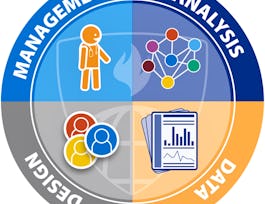Clinical trials are experiments designed to evaluate new interventions to prevent or treat disease in humans. The interventions evaluated can be drugs, devices (e.g., hearing aid), surgeries, behavioral interventions (e.g., smoking cessation program), community health programs (e.g. cancer screening programs) or health delivery systems (e.g., special care units for hospital admissions). We consider clinical trials experiments because the investigators rather than the patients or their doctors select the treatment the patients receive. Results from randomized clinical trials are usually considered the highest level of evidence for determining whether a treatment is effective because trials incorporates features to ensure that evaluation of the benefits and risks of treatments are objective and unbiased. The FDA requires that drugs or biologics (e.g., vaccines) are shown to be effective in clinical trials before they can be sold in the US.


Design and Interpretation of Clinical Trials
Taught in English
Some content may not be translated
142,614 already enrolled
(4,237 reviews)
Details to know

Add to your LinkedIn profile
6 quizzes
See how employees at top companies are mastering in-demand skills


Earn a career certificate
Add this credential to your LinkedIn profile, resume, or CV
Share it on social media and in your performance review

There are 6 modules in this course
This week, we explore different types of trial designs, including parallel, crossover, group allocation, factorial, large simple, equivalency, non-inferiority, and adaptive designs.
What's included
5 videos3 readings1 quiz2 discussion prompts
This week we discuss two key design features of randomized clinical trials used to protect against bias, randomization and masking.
What's included
3 videos1 reading1 quiz3 discussion prompts
This week focuses on a key design issue - selecting the primary outcome. We will also cover the gold standard for analysis of clinical trials, which is including all the participants in the analysis regardless of their actual treatment.
What's included
4 videos1 reading1 quiz2 discussion prompts
This week focuses on a key issue in the field of clinical trials, the ethics of experimentation in humans.
What's included
2 videos6 readings1 quiz2 discussion prompts
This week, we focus on reporting results of clinical trials in publications. We cover the Consolidated Standards of Reporting Trials (CONSORT) guidelines.
What's included
3 videos3 readings1 quiz2 discussion prompts
This week, we focus on whether RCTs are still the gold standard for evaluating evidence.
What's included
3 videos2 readings1 quiz2 discussion prompts
Instructors


Offered by
Recommended if you're interested in Research

Johns Hopkins University

Johns Hopkins University

Johns Hopkins University

Johns Hopkins University
Why people choose Coursera for their career




Learner reviews
Showing 3 of 4237
4,237 reviews
- 5 stars
76.17%
- 4 stars
20.73%
- 3 stars
2.54%
- 2 stars
0.35%
- 1 star
0.18%
New to Research? Start here.

Open new doors with Coursera Plus
Unlimited access to 7,000+ world-class courses, hands-on projects, and job-ready certificate programs - all included in your subscription
Advance your career with an online degree
Earn a degree from world-class universities - 100% online
Join over 3,400 global companies that choose Coursera for Business
Upskill your employees to excel in the digital economy
Frequently asked questions
Access to lectures and assignments depends on your type of enrollment. If you take a course in audit mode, you will be able to see most course materials for free. To access graded assignments and to earn a Certificate, you will need to purchase the Certificate experience, during or after your audit. If you don't see the audit option:
The course may not offer an audit option. You can try a Free Trial instead, or apply for Financial Aid.
The course may offer 'Full Course, No Certificate' instead. This option lets you see all course materials, submit required assessments, and get a final grade. This also means that you will not be able to purchase a Certificate experience.
When you purchase a Certificate you get access to all course materials, including graded assignments. Upon completing the course, your electronic Certificate will be added to your Accomplishments page - from there, you can print your Certificate or add it to your LinkedIn profile. If you only want to read and view the course content, you can audit the course for free.
You will be eligible for a full refund until two weeks after your payment date, or (for courses that have just launched) until two weeks after the first session of the course begins, whichever is later. You cannot receive a refund once you’ve earned a Course Certificate, even if you complete the course within the two-week refund period. See our full refund policy.


